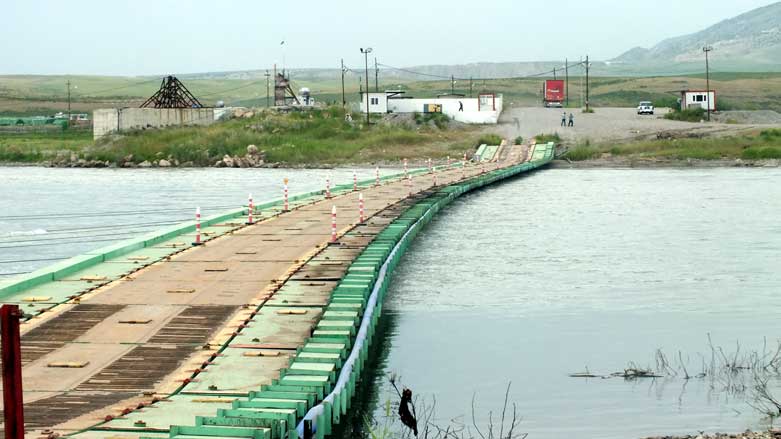Kurdistan Region–Rojava border opened after three-month closure

ERBIL, Kurdistan Region (Kurdistan24) – The border crossing between the Kurdistan Region and Syrian Kurdistan (Rojava) has re-opened after it was closed for three months, an official in the Kurdistan Regional Government (KRG) said on Tuesday.
Speaking to Kurdistan24, Hamid Darbandi, the official advisor and manager of the Syrian Kurdish crisis file in the Kurdistan Region, said Faysh Khabur border (also known as Semalka) is now open.
“We agreed to open the border between the Kurdistan Region and Rojava provided that the customs duties on both sides will be cancelled,” he said.
Darbandi added that tax-free food, humanitarian needs and overall necessities of life would be transported at the lowest prices to Rojava.
The crossing was closed on March 17 due to political rifts between the Democratic Union Party (PYD), which exercises wide influence over Kurdish areas in Syria, and Syria’s Kurdish National Council (ENKS), which is founded and backed by the KRG.
In a previous interview with Kurdistan24, Darbandi said that in the latest agreement penned in Duhok on Oct. 22, 2014, between the PYD-led ruling council of Rojava and ENKS, both parties agreed on sharing the authority and revenues of the border gate, but the contract was breached.
“Unfortunately, PYD controls the border gate alone and refuses to share the authority and revenues with the ENKS because they think the KRG supports one party over another,” he said.
However, the Kurdish administration in Rojava believed that the border closure was made after federalism was announced in the region.
The administration also believed that the closure was in coordination with Turkey, which is concerned by the increasing Kurdish influence in Syria.
Last week, an official from Rojava visited the Kurdistan Region and, after a series of meetings, agreed to open the border crossing as the closure had multiplier effects on living and economic conditions.
Before opening the crossing, Rojava was suffering from embargo as the northern borders with Turkey had been blocked since the outbreak of the Syrian civil war in 2011.
Additionally, al-Qaeda affiliated Nusra Front and the Syrian Arab rebels are fighting Rojava from the west, the Syrian government forces and the Islamic State (IS) from the south, and the border-crossing with the Kurdistan Region was closed from the east.
On Jan. 16, 2013, the KRG inaugurated the Kurdistan Region-Rojava border crossing (Faysh Khabur) by establishing a pontoon bridge across the Tigris about one kilometer downstream of the Iraqi-Syrian-Turkish trip point.
As a result, the crossing to Kurdistan from northeastern Syria has been used to bring in produce and construction materials.
Editing by Ava Homa and Karzan Sulaivany
